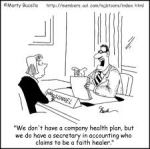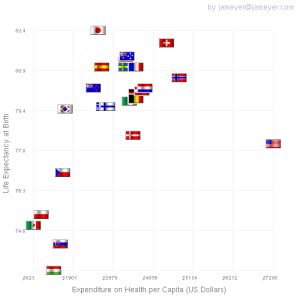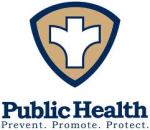Are There Death Panels in the Affordable Care Act? (AKA Obama vs Palin)
April 9, 2011 § 3 Comments
 In a nation characterized by freedom of choice and extreme variation in ideals and political view, President Barack Obama and former governor Sarah Palin find themselves on opposite ends of more than just the political spectrum. They do, however, have in common the fact that they are both very loved by their followers, and for the vast majority, very disliked–if not full on hated–by the other’s respective fan base. For our purposes here we will look at their comments in respect to end of life care as a part of the Patient Protection Plan and Affordable Care Act.
In a nation characterized by freedom of choice and extreme variation in ideals and political view, President Barack Obama and former governor Sarah Palin find themselves on opposite ends of more than just the political spectrum. They do, however, have in common the fact that they are both very loved by their followers, and for the vast majority, very disliked–if not full on hated–by the other’s respective fan base. For our purposes here we will look at their comments in respect to end of life care as a part of the Patient Protection Plan and Affordable Care Act.
End of life care is a sensitive and often controversial issue because of its implications and cost (Estimates show that about 27% of Medicare’s annual $327 billion budget–$88 billion–goes to care for patients in their final year of life).
It refers to medical care not only of patients in the final hours or days of their lives, but also medical care of all those with a terminal illness or terminal condition that has become advanced, progressive and incurable. It may require a range of decisions, including questions of palliative care, patients’ right to self-determination (of treatment, life), medical experimentation, the ethics and efficacy of extraordinary or hazardous medical interventions, and the ethics and efficacy even of continued routine medical interventions. In addition, end-of-life often touches upon rationing and the allocation of resources in hospitals and national medical systems. Such decisions are informed both by technical, medical considerations, as well as economic factors. In addition, end-of-life treatments are subject to considerations of patient autonomy.
In March 2010, President Obama signed the Patient Protection and Affordable Care Act.
“Many of the sick and elderly are concerned that the Democrats’ proposals will ultimately lead to rationing of their health care by – dare I say it – death panels? Establishment voices dismissed that phrase, but it rang true for many Americans. Working through ‘normal political channels,’ they made themselves heard, and as a result Congress will likely reject a wrong-headed proposal to authorize end-of-life counseling in this cost-cutting context. But the fact remains that the Democrats’ proposals would still empower unelected bureaucrats to make decisions affecting life or death health-care matters. Such government overreaching is what we’ve come to expect from this administration.”
Soon after there was an explosion of opinions from detractors and fans alike. One month before Palin joined the talk and really made the term “death panel” famous, President Obama had this to say of what was then just a “rumor”.
“The rumor that’s been circulating a lot lately is this idea that somehow the House of Representatives voted for ‘death panels’ that will basically pull the plug on grandma… this arose out of a provision in one of the House bills that allowed Medicare to reimburse people for consultations about end-of-life care, setting up living wills, the availability of hospice, et cetera. So the intention of the members of Congress was to give people more information so that they could handle issues of end-of-life care when they’re ready, on their own terms. It wasn’t forcing anybody to do anything. This is I guess where the rumor came from.”
President Obama also said the “irony” is that one of the chief sponsors of this idea was Sen. Johnny Isakson, R-Ga., who “sensibly thought this would expand peoples’ options.”
Isakson this week told the Washington Post
“someone said Sarah Palin’s website had talked about the House bill having death panels on it where people would be euthanized. How someone could take an end of life directive or a living will as that is nuts. You’re putting the authority in the individual rather than the government. I don’t know how that got so mixed up. …It empowers you to be able to make decisions at a difficult time rather than having the government making them for you.”
President Obama said that underlying this issue was the “legitimate concern” that people have “that if we are reforming the health system to make it more efficient that somehow that will mean rationing of care.” He painted a picture of “some bureaucrat” saying “’You can’t have this test, you can’t have this procedure’” because “some bean counter” said so.
The president said his health care reform would put these decisions in the hands of medical experts and doctors, rather than insurance company bureaucrats. He asked, “So why is it that people would prefer having insurance companies making those decisions rather than medical experts and doctors figuring out what are good deals for care?” He went on to say, “I want to be very clear” about the “underlying fear that people won’t get the care they need. You will have the care you need, but also care that is being denied to you right now – that is what we are fighting for.”
“Large shares of seniors mistakenly believe the law includes provisions that cut some previously universal Medicare benefits and creates ‘death panels.’ Half of seniors (50%) say the law will cut benefits that were previously provided to all people on Medicare, and more than a third (36%) incorrectly believe the law will ‘allow a government panel to make decisions about end-of-life care for people on Medicare.'”
The finding that more than 36% of seniors believe there are death panelscreated by the Affordable Care Act is of great concern. What an example this is of how politics and our very American tendency to support our favorite leaders can influence us. My intention is not to criticize Sarah Palin, nor fully endorse the President. My concern is in the lack of education of American Citizens about the existing health care reform bill of which so many have an opinion.
Only through learning will we empower ourselves to fix these problems, so let us learn…
Will Obama Allow You to Keep Your Current Coverage?
April 7, 2011 § 9 Comments
 President Obama said back in March of 2010, “No matter how we reform health care, we will keep this promise: If you like your doctor, you will be able to keep your doctor. Period. If you like your health care plan, you will be able to keep your health care plan. Period. No one will take it away. No matter what. My view is that health care reform should be guided by a simple principle: fix what’s broken and build on what works.”
President Obama said back in March of 2010, “No matter how we reform health care, we will keep this promise: If you like your doctor, you will be able to keep your doctor. Period. If you like your health care plan, you will be able to keep your health care plan. Period. No one will take it away. No matter what. My view is that health care reform should be guided by a simple principle: fix what’s broken and build on what works.”
However, many do not believe him. Republican John Boehner (Minority Leader of the United States House of Representatives) sees it differently, “According to experts, more than 87 million American could lose access to their current health care plan under the new law. Workers at a majority of the nation’s employers – including as many as four out of every five small businesses – would lose their current coverage, thus providing further evidence that ObamaCare is doing exactly the opposite of what Democrats promised it would do.”
The question is who do you trust?
The Departments of Health and Human Services, Labor, and Treasury made the following statement on healthreform.gov, promising to fulfill what President Obama promised by:
- Protecting the ability of individuals and businesses to keep their current plan;
- Providing important consumer protections that give Americans – rather than insurance companies – control over their own health care.
- Providing stability and flexibility to insurers and businesses that offer insurance coverage as the nation transitions to a more competitive marketplace in 2014 where businesses and consumers will have more affordable choices through Exchanges.
It goes on to say the following:
The rule announced today preserves the ability of the American people to keep their current plan if they like it, while providing new benefits, by minimizing market disruption and putting us on a glide path toward the competitive, patient-centered market of the future. While it requires all health plans to provide important new benefits to consumers, it allows plans that existed on March 23, 2010 to innovate and contain costs by allowing insurers and employers to make routine changes without losing grandfather status. Plans will lose their “grandfather” status if they choose to significantly cut benefits or increase out-of-pocket spending for consumers – and consumers in plans that make such changes will gain new consumer protections.
Most of the 133 million Americans with employer-sponsored health insurance through large employers will maintain the coverage they have today. Large employer-based plans already offer most of the comprehensive benefits and consumer protections that the Affordable Care Act will provide to all Americans this year – such as preventing lifetime limits on coverage – and in the future.
—
What do you believe? Leave my your comments on what you believe or who you believe with respect to this issue and the many others involved with the implementation of the Affordable Care Act.
Is Health Care an Unalienable Right? Tackling the Issue
April 7, 2011 § 5 Comments
 Question: Should all Americans have the right (be entitled) to health care? Below are several arguments that have been expressed with a pro and con side as to ensure fair debate.
Question: Should all Americans have the right (be entitled) to health care? Below are several arguments that have been expressed with a pro and con side as to ensure fair debate.
Pro: The Constitution says all men have the unalienable right to “Life,” which entails having the health care needed to preserve life.
Con: It guarantees the right to “pursue” happiness, not the right to happiness or free medical services.
Pro: The Preamble of the US Constitution states its purpose is to “promote the general welfare” of the people. Similar to the right to an education, they should have the right to health care because they both “promote the general welfare.”
Con: The Preamble states that its purpose is to “promote” the general welfare, not to provide it.
Pro: Providing all citizens the right to health care is good for economic productivity because when people have access to health care, they live healthier and longer lives, which allows them to contribute to society for a longer time. Also, the cost of bad health and shorter life spans of Americans suffering from uninsurance amounts to $65-130 billion annually.
Con: Providing a right to health care is socialism and is bad for economic productivity. Socialized medicine is comparable to food stamps, housing subsidies, and welfare. Distributing such charity to society makes people lazy, decreases the incentive for people to strive for excellence, and inhibits productivity.
Pro: Health care costs are unaffordable and bankrupting America (and Americans–In 2007, 62.1% of all US bankruptcies were related to medical expenses and 78% of these bankruptcies were filed by people who had medical insurance).
Con: Guaranteeing health care as a right will lead to an increase in demand for health care that will decrease the quality of care because health care professionals will be overstretched.
Pro: Coverage of all Americans would best counter or contain the spreading of epidemics such as the H1N1 flu (swine flu) or smallpox.
Con: Guaranteeing health care for all Americans will lead to a problem known as “moral hazard,” meaning that people will take riskier actions because they know that if they get hurt, they are guaranteed health care coverage.
—
Where do you stand on these issues? You might like me find yourself somewhere in the middle picking and choosing parts of each of these questions. What is important, I believe, is that we are educated and that we evaluate both sides. In an age of mass media and mass information due to social media and other internet sources, many continue to be held back by party politics, idea crushing rhetoric, and other paradigms that often impede our rational decision making.
To see a more complete list of health care issues with both pro’s and con’s, click here.
Employer-Based Health Insurance (Why It’s No Good)
April 5, 2011 § 4 Comments
 Many Americans would be surprised to hear that employer-based health insurance is not standard throughout the rest of the world. In fact, there is no other health system quite like ours.
Many Americans would be surprised to hear that employer-based health insurance is not standard throughout the rest of the world. In fact, there is no other health system quite like ours.
But, is it better? This could be just one more example of American dominance and uniqueness, à la our military, right?
The answer is a resounding… “probably not”.
But how did employer-based health insurance actually begin?
I am not an expert on this subject by any means but what research I have done has taught me that our health system was actually a byproduct of evading wage controls during World War II. Due to the nation’s drafted military personnel who risked their lives on foreign battlefields at low, tightly controlled pay, it was believed that those who stayed behind should have their wages controlled as well. However, congress did not extend the regulations to benefits such as health insurance.
Congress further encouraged the growth of employment-based health insurance by treating the employers’ contribution to their employees’ health insurance as a tax-deductible business expense. However, it was also not viewed as taxable compensation of the employee. Unfortunately, that tax preference was not granted to families forced to purchase health insurance on their own. They had to buy it with after-tax money.
Studies show that 4 of 5 people are satisfied with that coverage. This is part of the reason most people are reluctant to give up such a system and many politicians are subsequently against getting rid of it. However, health policy experts do not agree.
In fact, many employers are also seeing the increasing costs of health insurance and are seeing the flaws in this system. Leaders of business, such as Warren Buffett, have criticized the employer-based health insurance because of the way it limits American companies in their competition with international counterparts who don’t have to deal with their employees health insurance payments.
Employees also tend to view employer-paid health insurance as a gift (on top of their pay). Therefore, they see little personal gain in attempts to control the cost of their care. Combine this with service-based incentives for clinical care providers who literally profit from “doing” more and using the most expensive methods (whether they choose them or not, the reality is they have that choice) and often times the employee will either never hear of it, or will simply not care.
I will conclude with another major shortcoming of employment-based health insurance, and that is that it is only temporary. It is tied to a particular job in a particular company, and it is lost when that job is lost. Let’s say you, my reader, lose your current job. With the increased stress of being unemployed, you also now are without health insurance for you and your family. At one of the most stressful and challenging parts of your life (financially as well psychologically, socially, etc) you are now forced with the decision of spending money on an expensive private insurance plan or playing roulette with your health and hoping you and your family stay healthy.
Nowhere else in the industrialized world does a family also suffer the loss of its health insurance.
It happens only in America, under employment-based insurance.
The Need for Change: By the Numbers
April 5, 2011 § 1 Comment
Now, first it should be mentioned that many parts of the US Health System are exemplary. For all its problems, the United States’ free-market system still provides some of the highest-quality health care in the world and is generally believed to be first in responsiveness. For example, 18 of the last 25 winners of the Nobel Prize in Medicine either are U.S. citizens or work here. Due of the absence of price controls, U.S. medicine provides the incentives that lead to innovation breakthroughs in new drugs and other medical technologies. American companies have also developed half of all the major new medicines introduced worldwide over the past 20 years, and according to a survey by the president’s Council of Economic Advisors, Americans have played a key role in 80 percent of the most important medical advances of the past 30 years.
However, our inefficiency has been well-documented:
The United States spends a higher proportion of its GDP on health care 16%, than any other country in the world, except for East Timor. The number of employers who offer health insurance is declining.
A 2001 study in five states found that medical debt contributed to 46.2% of all personal bankruptcies and in 2007, 62.1% of filers for bankruptcies claimed high medical expenses. Since then, health costs and the numbers of uninsured and underinsured have increased.
The USA pays twice as much yet lags behind other wealthy nations in such measures as infant mortality and life expectancy. Currently, the USA has a higher infant mortality rate than most of the world’s industrialized nations. The United States life expectancy is 42nd in the world, after some other industrialized nations, lagging the other nations of the G5 and just after Chile (35th) and Cuba (37th).

The World Health Organization (WHO), in 2000, ranked the U.S. health care system as the highest in cost, 37th in overall performance, and 72nd by overall level of health (among 191 member nations included in the study). The Commonwealth Fund also ranked the United States last in the quality of health care among similar countries, and notes U.S. care costs the most (Click here to see a comparison between our healthy system and that of Canada).
Also well-documented is the fact that the USA is the “only wealthy, industrialized nation that does not ensure that all citizens have coverage”. In 2004, the Institute of Medicine report observed “lack of health insurance causes roughly 18,000 unnecessary deaths every year in the United States”. High as this number is, a 2009 Harvard study estimated that a staggering 44,800 excess deaths occurred annually due to lack of health insurance.
Health insurance costs are rising faster than wages or inflation, and medical causes were cited by about half of bankruptcy filers in the United States in 2001.
Hospitals are the largest source of uncompensated care, delivering about $24 billion in uncompensated care to the uninsured in 2001. These hospitals are not losing these billions of dollars every year, but must be compensated from charity groups, chief among these groups is none other than the US taxpayers
Counting Calories and the Affordable Care Act
April 3, 2011 § 4 Comments
 Under the new health care law, chain restaurants with 20 or more locations will have to provide a calorie count for each standard menu item. The data must be displayed on the menu “in a clear and conspicuous manner.” Salad bars and buffets can satisfy the requirement by placing signs next to food items. This is just one of the preventative measures that is part of the The Patient Protection and Affordable Care Act.
Under the new health care law, chain restaurants with 20 or more locations will have to provide a calorie count for each standard menu item. The data must be displayed on the menu “in a clear and conspicuous manner.” Salad bars and buffets can satisfy the requirement by placing signs next to food items. This is just one of the preventative measures that is part of the The Patient Protection and Affordable Care Act.
Margo G. Wootan, who is the director of nutrition policy at the Center for Science in the Public Interest, said consumers appeared to be choosing lower-calorie foods as a result of calorie-posting laws and regulations adopted in New York City and several other places. Equally important, she said, some restaurants have changed their menu offerings, shrinking portion sizes, reducing the fat in pastries or substituting low-fat milk for cream. Such should be a natural consequence of things to come as more and more food companies face greater government scrutiny as well as a continuing growth in consumer interest in healthy eating.
Cathy Nonas, who is the director of physical activity and nutrition at the New York City Health Department, said consumers experienced “tremendous sticker shock” when they saw how many calories were in the food they were eating. Ms Nonas also said “about 15 percent” of people who come in to chain restaurants say the new given calorie information makes a difference in their purchasing decisions. The general idea and beauty of these new measures is that it enables the greatest gift America gives, which is the choice to decide for oneself. Whether or not government should be able to regulate more than simply giving information is another debate, and a good one at that, but when it comes to empowering people through education to make their own healthy decisions there should be little to no debate necessary.
Prevention and the Affordable Care Act 2: Q&A
April 2, 2011 § Leave a comment
 Continuing with the theme of prevention provided by the new act, I came across an article by Ezra Klein, who interviewed Dr. Jeff Levi, the executive director of the Trust for America’s Health and a member of the faculty at the George Washington School of Health Policy. The questions are ones that most of us have had and the answers are eloquently written to be easily understood and gives a hope that the writers of the bill are paying attention to what Public Health educators have been saying for years:
Continuing with the theme of prevention provided by the new act, I came across an article by Ezra Klein, who interviewed Dr. Jeff Levi, the executive director of the Trust for America’s Health and a member of the faculty at the George Washington School of Health Policy. The questions are ones that most of us have had and the answers are eloquently written to be easily understood and gives a hope that the writers of the bill are paying attention to what Public Health educators have been saying for years:
So tell me, as simply as you can, what this bill does for prevention.
It ensures that group-health plans offer first-dollar, no co-pay, no-deductible coverage of clinical preventive services. But there’s also a recognition that what happens outside the clinic can have a bigger impact than what happens in the clinic. There’s $15 billion over 10 years for a Prevention and Public Health Fund that will support community prevention programs that try to change the policies, the physical and social environment, that make it hard for people to make healthy choices.
Give me some examples of the types of programs and initiatives it will fund.
The focus tends to be on structural change. So anything from a national campaign to promote immunizations and a better understanding of the safety of vaccines to a narrower, neighborhood approach that puts lights in a playground or negotiates a mixed-use agreement with a school so the playground can be open after hours. It could be used to improve the walkability of neighborhoods or the nutrition standards at schools. Some of this money will go to help state and local health departments build their capacity to do this kind of prevention.
And then there are things that don’t cost money, like the menu labeling initiative. Are there other policies like that one tucked away in the bill?
In normal circumstances some of the small parts of this bill would be considered huge victories. There’s menu labeling for chain restaurants, which is a huge change. There are a bunch of demonstration programs, some of them simple things that you’d think would already be the case but aren’t. Coverage of tobacco-cessation service for pregnant women in Medicaid, for instance. Incentive grants in states to do more chronic disease prevention. And the most important clinical piece is that all group-health plans offer first-dollar – no co-pays, no deductibles — coverage for anything rated A or B by the National Prevention Task Force.
This seems a bit small to me. In the context of the bill, $15 billion isn’t very much. It’s hard to imagine it transforming our public health sector.
There’s not enough money to truly transform public health, if we’re honest. But if it’s leveraged right, it can be transformative. It can be leveraged as an incentive to get state governments to rethink their community health programs, and it’s a signal from Congress that this is a new direction, and some of our federal programs need to be reshaped with this program in mind.
You’ve implied here that part of this money is about moving prevention and public health in a different direction, that we’ve been doing it wrong and this is a chance to do it right. What’s the new theory?
It’s thinking about a community. It could be a city, a neighborhood, or even a defined population. And you need to think about the impediments to them making healthy choices. There are parts of D.C. where you can’t walk at night or let your kids play. In those neighborhoods you could do better lighting, safer playgrounds, supervised playtime for kids. That gives them more exercise and healthier lives.
Another way to think about it is, what are the risks populations experience, and how do they contribute to other risks they take? Unsafe communities make it hard to exercise and also create stress and anxiety that comes out in drinking, in smoking, in drugs. Starting with the elements of the community that create risk and trying to change them comprehensively so you have an effect on many diseases, not just one disease.
Accountability and Healthcare
March 22, 2011 § 4 Comments
 I recently read an article that was written in September of 2009 by Atul Gawande called the Road Ahead. In the article he comments on the speech President Obama had then recently given about the upcoming reform to health care. Atul Gawande is a highly respected writer for the New Yorker and a general and endocrine surgeon at Brigham and Women’s Hospital in Boston, Massachusetts and associate director of their Center for Surgery and Public Health. He is also an associate professor at the Harvard School of Public Health and an associate professor of surgery at Harvard Medical School. In the Road Ahead, Gawande commends the President’s efforts to make all those involved in health care more accountable. As Gawande discusses, Obama has continued to defend policies that would push us, “for the first time in history”, in the direction of encouraging doctors to make more rational, better coordinated, less costly clinical decisions. This includes experiments with changing the way doctors are paid, a clinician board to identify inappropriate care, and a “fee”, or tax, on extremely high-cost insurance premiums.
I recently read an article that was written in September of 2009 by Atul Gawande called the Road Ahead. In the article he comments on the speech President Obama had then recently given about the upcoming reform to health care. Atul Gawande is a highly respected writer for the New Yorker and a general and endocrine surgeon at Brigham and Women’s Hospital in Boston, Massachusetts and associate director of their Center for Surgery and Public Health. He is also an associate professor at the Harvard School of Public Health and an associate professor of surgery at Harvard Medical School. In the Road Ahead, Gawande commends the President’s efforts to make all those involved in health care more accountable. As Gawande discusses, Obama has continued to defend policies that would push us, “for the first time in history”, in the direction of encouraging doctors to make more rational, better coordinated, less costly clinical decisions. This includes experiments with changing the way doctors are paid, a clinician board to identify inappropriate care, and a “fee”, or tax, on extremely high-cost insurance premiums.
Gawande also talks about health care reform being a process and not simply a quick-fix. He compares it to being like a “series of operations”, with “x-rays and tests in between to show how we’re doing” and not simply a “radical surgery” that will happen overnight. Gawande admits that it is very possible that this reform may fail and that there will be problems with it but there can’t be pride and party politics getting in the way of what is actually needed for the country. Again, these principles goes back to basic core principles which consist of accountability, unity/teamwork, and sacrificing for a better future. As he concludes, “We can only forge ahead”.
A Public Health Student’s Perspective on US Health Care: How the Solutions are Simpler than We May Think
February 7, 2011 § 9 Comments
I am an undergraduate student at BYU studying Public Health. I am discussing the US Health Care System and how sound principles are the only way to solve the current problems. Chief among the principles I will write about are accountability and prevention. When dealing with health, like most things in life, it is better to prepare and prevent than to repair and repent. When in life we start dealing with problems in strictly “clinical” efforts we will quickly find ourselves out of control and unable to manage our increasingly unstable health. Heck, you might find that you’re paying 2.3 million dollars in a single year to get the 37th best healthcare in the world. Tired of the analogies? Think this is unpatriotic (especially when France is #1 on that list)? Maybe you’re right. Maybe healthcare is too complicated to compare with social, psychological, and even religious principles. But should complexity be an excuse not to try and understand our healthcare? Surely, the patriotic thing to do is to educate ourselves about this issue so that we can be informed and give our opinions on the issue. If we ignore the subject, as many are doing, we leave it to politicians (whether well intentioned or not) and whoever else figures to make a profit from health reform. Therefore, the following questions, among others, shall be considered:
How did the US system get so inefficient (#1 in cost, #37 in quality, etc)? What role should government play in providing health?
Is health an unalienable right? Does it fit into life, liberty, and the pursuit of happiness?
How does preventative healthcare, or public health, play a role in current health care? What about in ObamaCare? How could it play a role?
What is the role of accountability in healthcare today, ObamaCare, and how could it play more of a role? How should physicians and other health professionals be held accountable? How should people be held accountable for lifestyle decisions such as smoking, alcohol abuse, obesity, and sexual promiscuity that leads to STD’s, etc?
Should the federal government, state government, or local government play more of a role in providing healthcare or should none of them at all be involved? How much? Does medicare and medicaid work? What can be changed?
What can we learn from other countries who have had more success? What makes our system different than theirs and how much can we change?
Click here to learn more about Healthy Policy from KaiserEDU.org


